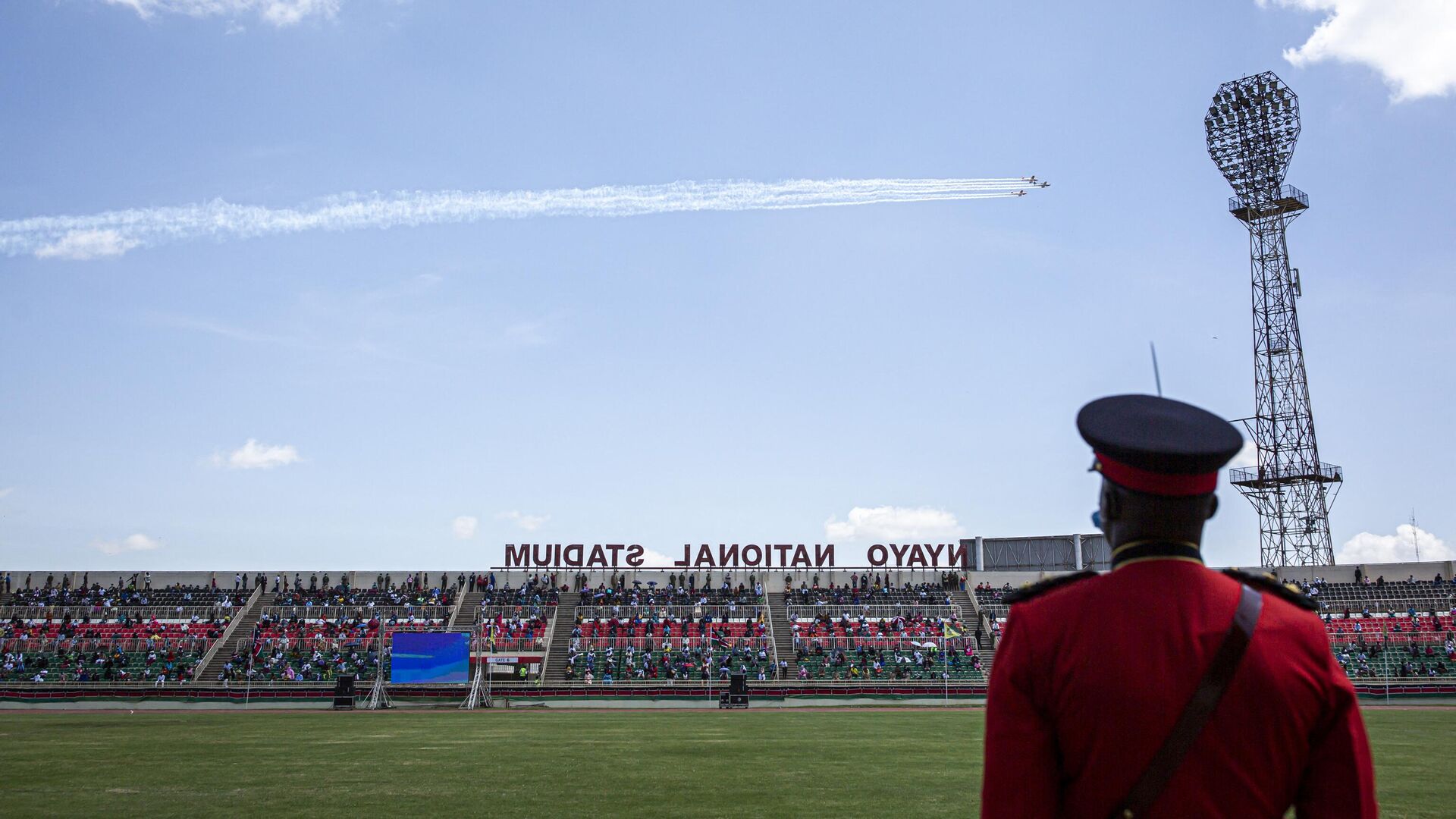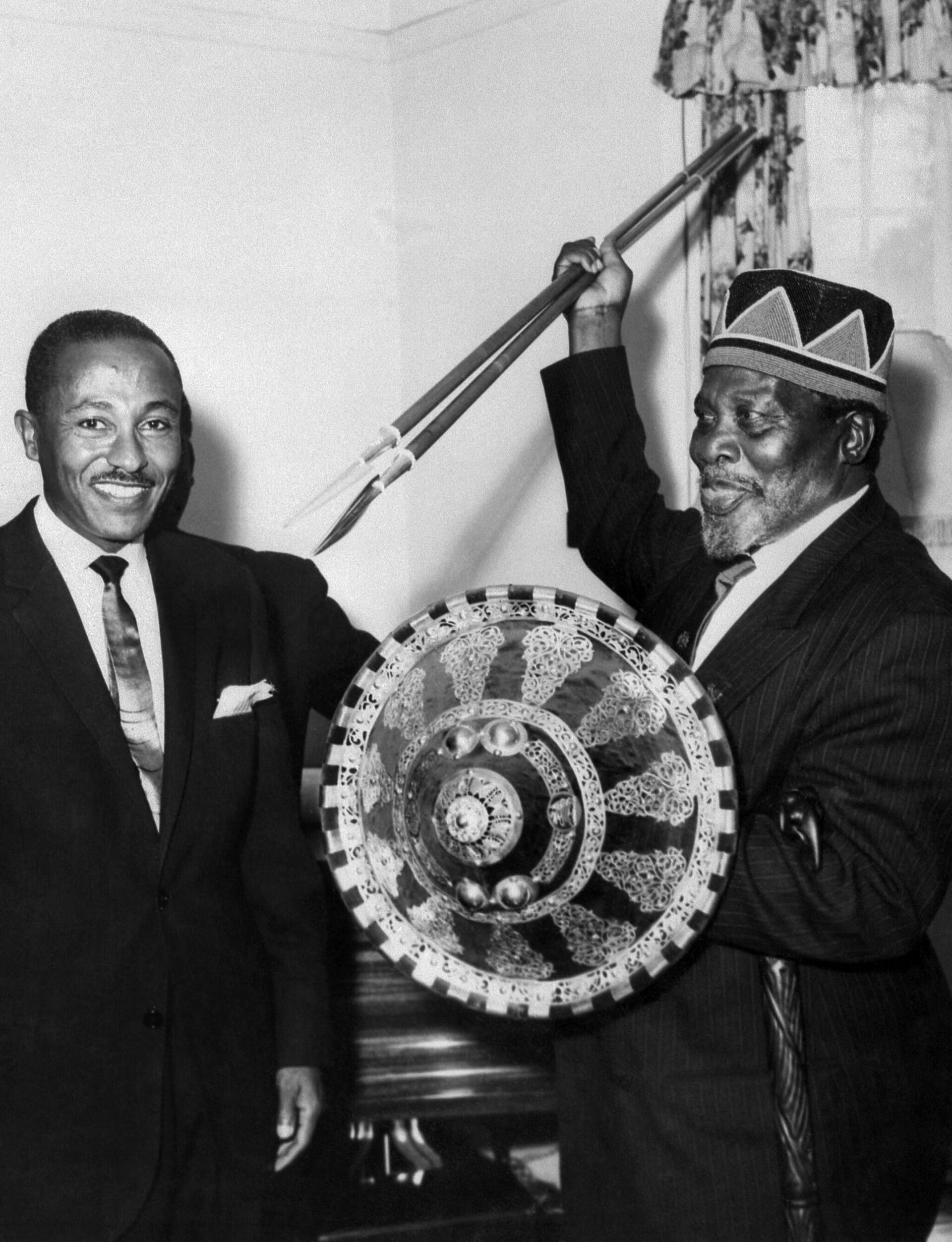Jamhuri Day: Kenya Celebrates 59 Years of Independence
10:19 GMT 12.12.2022 (Updated: 14:09 GMT 14.02.2023)

© AFP 2023 / PATRICK MEINHARDT
Subscribe
One of the most important holidays in Kenya, the country's national day, known as Jamhuri Day (with "jamhuri" meaning "republic" in Swahili), is also regarded as the beginning of the Christmas season.
On Monday, Kenyan President William Ruto for the first time presided over the "Trooping of the Colors" ceremony, held every December 12 to celebrate the anniversary of the formation of the republic and the country's independence.
The "Trooping of the Colors" involves presidential and regimental symbols being showcased by the national military. The ceremony originates in England, with the United Kingdom being the former metropolitan power from which Kenyans won their independence after a long and dramatic struggle.
After the ceremony, the celebration's festivities take place. This year, they are held under the theme “Connect, Innovate and Inspire,” seeking to promote technological innovations created by Kenyans.
"This celebration will be slightly different from what we have had previously in the sense that it’s a themed celebration with a focus on ICT and, going forward, we will be doing similar celebrations with themes starting with Madaraka Day* and the other public holidays that we will be undertaking within the country," an official told media.
Jamhuri Day commemorates the creation of the Republic of Kenya in 1964, which, in its turn, took place on the first anniversary of the country's independence in 1963.
Kenya's Struggle
The territory of what is now modern Kenya had been under British control since the 1880s, during what is known as the colonial Scramble for Africa. In 1895, the East Africa Protectorate was created, and later, in 1920, it transformed into the Colony and Protectorate of Kenya, named after the country's highest mountain – with "colony" referring to the interior lands, and the coastal "protectorate" formally controlled by the Sultan of Zanzibar.
According to a colonial commission, Kenya had "some of the richest agricultural soils in the world, mostly in districts where the elevation and climate make it possible for Europeans to reside permanently."
From the end of the 19th century, there was active resistance to British colonialism in the area, with Africans indignant over the violence of colonial troops, disproportionate areas of land owned by white settlers, and the exploitation of African wage laborers.
Kenyans' anticolonial struggle reached its climax when the Mau Mau Rebellion erupted in 1952, an eight-year-long war between the guerilla Kenya Land and Freedom Army (known as Mau Mau), dominated by the Kikuyu people, and colonial forces. The conflict was marked by multiple atrocities and led to thousands of deaths. The main Mau Mau force was defeated in 1956, but some rebels continued resistance until 1960.

Prime minister of the autonomous Kenyan government, Jomo Kenyatta, (R) poses with presents offered by foreign delegations, December 13, 1963 in Nairobi after independence was declared on December 12, 1963.
© AFP 2023
At the same time, the Kenya African Union (KAU) led by Jomo Kenyatta, as well as several other parties, promoted a peaceful struggle for the political rights of Africans. Their efforts, along with the shock from the uprising, led to the gradual democratization of the colonial rule, with several constitutional changes giving Africans more representation in the legislative council.
Kenya became independent on December 12, 1963 and became a Republic a year later, with Kenyatta, popularly known as the Father of the Nation or Mzee, as the head of state. He was also the leader of the Kenya African National Union (KANU), created after the KAU merged with several other parties. Jomo Kenyatta remained the country's leader until 1978, and KANU was the governing party for almost 40 years.
*Madaraka Day is another national holiday in Kenya, celebrated on June 1, commemorating the acquisition of internal self-rule and partial independence in 1963.

